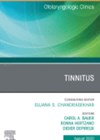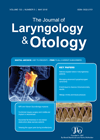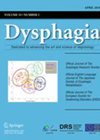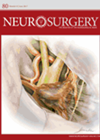
Journal Reviews
Resolving dysphagia – can we distinguish mild dysphagia from no dysphagia?
Many patients with dysphagia following neurological events can and do experience a resolution of their swallowing difficulties, sometimes without any intervention. However, it is challenging for clinicians to distinguish mild dysphagia from no dysphagia. The question of where to draw...
Pharmacologic treatment options for tinnitus
This article summarises potential medications that could be used to treat tinnitus and the evidence behind their use. Effective medications to eliminate tinnitus remain elusive but treatment could be divided into two broad categories: treatment to reduce perception of tinnitus...
Death related to epistaxis
One of the commonest emergencies presenting in ENT is epistaxis. The presentation can be through accident and emergency or through ward referrals. In this national audit of epistaxis management involving 113 centres, it was noted that 33 of the 985...
From a dysphagia clinical trial to a multidisciplinary head and neck clinical pathway – the road to implementation
This paper describes the barriers and facilitators to establishing a structured and coordinated multidisciplinary care pathway for patients with head and neck cancer at a medical centre in the USA. The initiative was set in motion by the roll out...
Grading dysphagia as a toxicity in treating head and neck cancer
Common Terminology Criteria for Adverse Events (CTCAE) is a system used by clinicians to grade the toxicity of oncology treatments in a standardised manner. Dysphagia is perhaps the most common long-term toxicity of head and neck cancer treatment. Currently, a...
Healthcare economics and device approvals
We use several FDA-approved devices in our clinical practice but are rarely aware about the stringent procedures followed by manufacturers, as well as the FDA, before the devices become commercially available. The authors of this paper undertook a comprehensive review...
What can we tell about swallow physiology from a bedside clinical assessment?
Knowledge about swallowing physiology has greatly increased with the use of instrumental assessments such as videofluoroscopy (VFS). The authors of this paper performed an analysis of data obtained from 60 stroke patients who were assessed via a clinical swallow examination...












